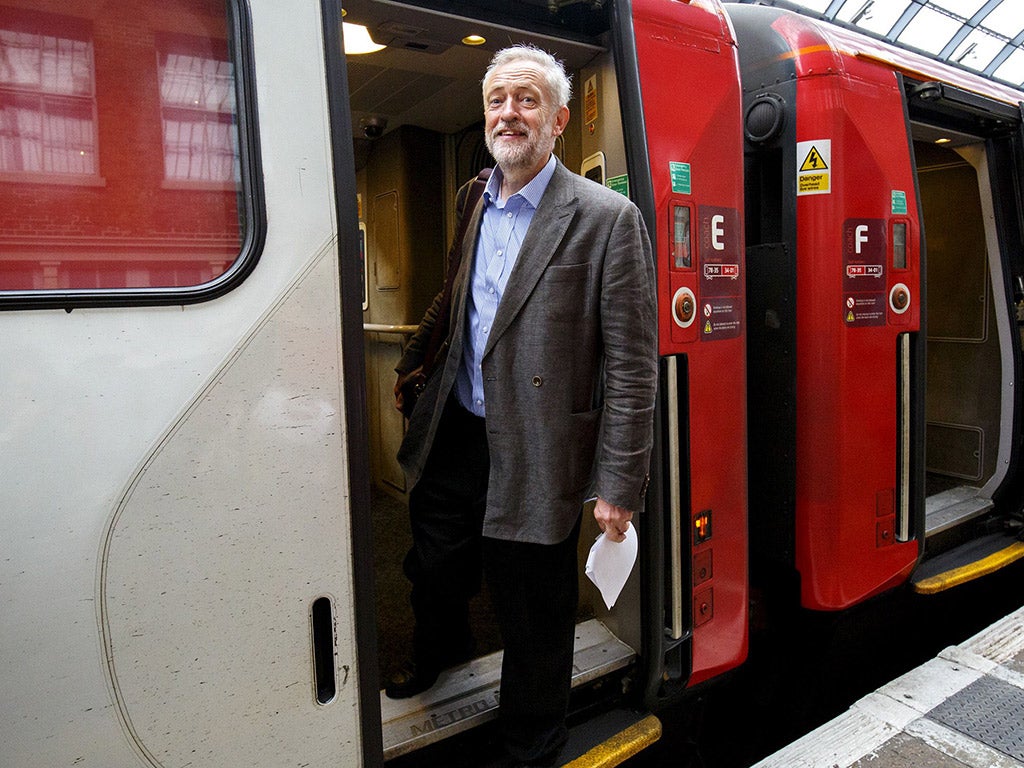I used the women-only train carriages in Tokyo, for good reason – and I'd welcome them in the UK too
Instead of acting as though we live in a sexism-free utopia, perhaps we should implement this sensible strategy that will actually make women safer


What is your personal utopia? Peace on earth, eternal happiness, a global sense of society? Perhaps it’s universal healthcare, affordable housing, more green spaces…or living without fear and judgment. How about an altogether simpler vision of the future: to not get groped on trains?
Women have had enough. We are weary, battle-worn, fatigued by the constant recounting of the same, sad stories. “Only yesterday, a guy grabbed my hand on the tube and tried to keep his hand firmly over mine for the whole journey,” says a colleague in passing, so common has this kind of chat become.
Japan has had female-only carriages on its metro system for the past ten years. I lived there when they were first introduced, and happily used them – particularly during peak periods, when people are packed so tightly together that your feet leave the floor and you remain upright. Think London Underground is bad for overcrowding? Go to Tokyo – where exhausted commuters routinely sleep standing up; where station guards on the underground work together in twos and threes to push people on to get train doors closed; where touching, brushing and rubbing of your behind is commonplace; where the only recourse is for a woman or girl to grab the hand of a perpetrator – if you can work out who’s doing it – and raise it in the air, shouting “Chikan!” (“Pervert!”). That takes guts, particularly in Japan, where politeness rules supreme. All too often, victims of harassment and assault stay silent. I didn’t tell anyone the night a man followed me home from my local train station, before trying to force his way through the door of my apartment. Thankfully, my screams scared him off.
Just this month British Transport Police revealed that sexual offences have risen by 25 per cent on trains and Tubes in the past year alone – reaching record numbers. Politicians may acknowledge it’s a problem – David Cameron stood by Britain’s harassment laws in April, while repeatedly opposing plans to criminalise wolf-whistling – yet they do very little to tackle the issue head-on. New and creative policies to tackle the crisis are thin on the ground.
That’s why Jeremy Corbyn, in his willingness to actually talk to women about what they really want – imagine! – is so refreshing. He’s opening a dialogue that has been consistently shut down, and while it may not directly address all the root causes – of insidious, systemic misogyny, of male entitlement, of the dominance and subjugation of women by so many men – it’s a start. It’s a short-term solution to make women feel a little safer, and we should welcome it. He’s been careful to state that it’s only a conversation he wants to open with women themselves, and he’s also unveiled a comprehensive plan to tackle sexual harassment on the streets, from passing vehicles and in the workplace. Perhaps it’s not surprising from a candidate who promised that half his cabinet would be women.
There are understandable concerns over the idea of sex-segregated carriages in the UK: accusations that it supports a victim-blaming mentality, or that it will ‘ghettoise’ women who are assaulted in mixed-gender carriages, as if they were ‘asking for it’, like a rape victim accused of ‘bringing it on herself’ for getting drunk or for wearing a short dress. Many say, rightly, that we shouldn’t shame women into limiting their environments, but focus instead on teaching men not to degrade them. But how about doing something that could help women, practically, right now? Let the onus remain on tackling harassment, but in lieu of that utopia: let’s highlight the risk, and shame those who don't think it's a problem into realising that it really is.
Join our commenting forum
Join thought-provoking conversations, follow other Independent readers and see their replies
Comments
Bookmark popover
Removed from bookmarks